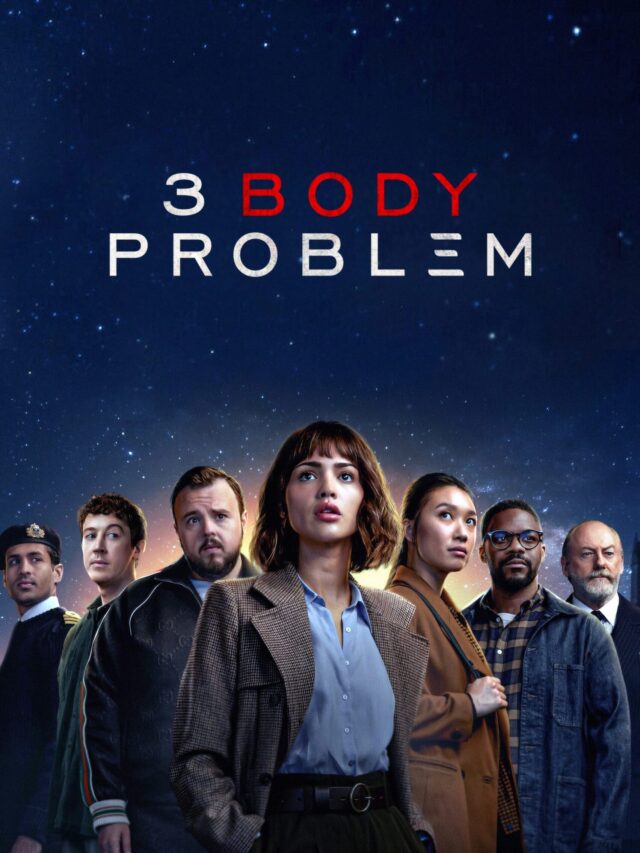David Benioff, D. B. Weiss, and Alexander Woo produced the American science fiction television series 3 Body Problem, which is based on the Hugo Award-winning Chinese novel The Three-Body Problem by Liu Cixin. It is the second live-action adaption, following the 2023 Chinese television series.
David Benioff, D. B. Weiss, and Alexander Woo bring Liu Cixin’s Chinese novel to the streaming platform with an eight-episode season, the first of which debuted at SXSW.
It’s an homage to Liu Cixin’s novel of the same name, in which the deliciously vulgar Shi Quiang is referred to as Da Shi (“Big Shi”) as a kind of affection. But no one who hasn’t read the novel will understand why Wong’s character is portrayed in that way, because he’s now a British-born character with a less mystical name than “Clarence.” The character in the series is extremely amusing, but he does not stand out iconoclastically in the same way. He’s flatter, less unexpected, and overall much more conventional.
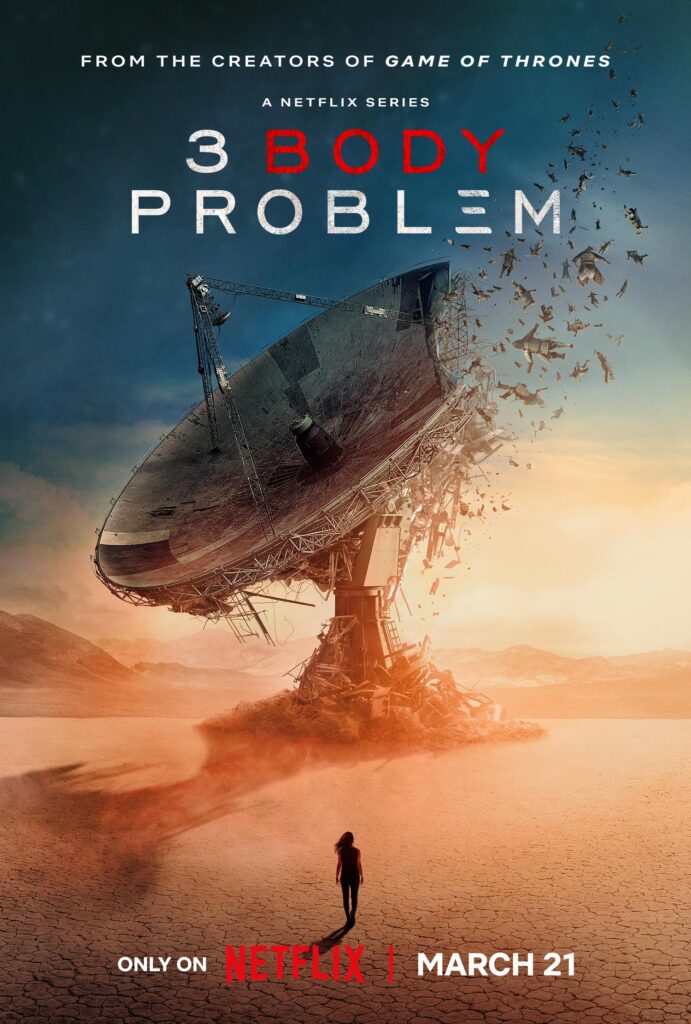
David Benioff, D. B. Weiss, and Alexander Woo’s adaptation of 3 Body Problem understands that it should strive to be Da Shi. It’s based on a literature series with a distinct cultural backdrop and is structured around some astonishingly complicated concepts. In order to attract the broadest potential Netflix audience, that cultural backdrop has been entirely universalized, and most of the most important ideas, which are commonly dismissed as vestigial references, have been polished down to meaningless residues of coolness rather than vital aspects.
I believe the 3 Body Problem will appeal to audiences who want their sci-fi to have spectacle but not too much grandeur, as well as science but not too much rigor. These first eight episodes may aim to resemble “Da Shi,” but they are more like “Clarence.”
Cut to present-day London. Scientists on the cutting edge of science are committing suicide all across the world, leaving a trail of deaths and cryptic leads for the mainly mystique-free Clarence (Wong).
Five former Oxford classmates reunite to solve this global mystery. Once, all five showed great promise. Jin (Jess Hong) is a theoretical physicist at the forefront of his discipline. Saul (Jovan Adepo), once the smartest member of the group, has stalled and is now a research assistant who is more interested in getting high and getting laid. Will (Alex Sharp) reached a plateau and now teaches physics to high school students. Auggie (Eiza González) abandoned physics and is now a nanotech pioneer, creating tiny devices that can break somewhat larger objects into smaller parts. And Jack (John Bradley) built a successful snack food brand.
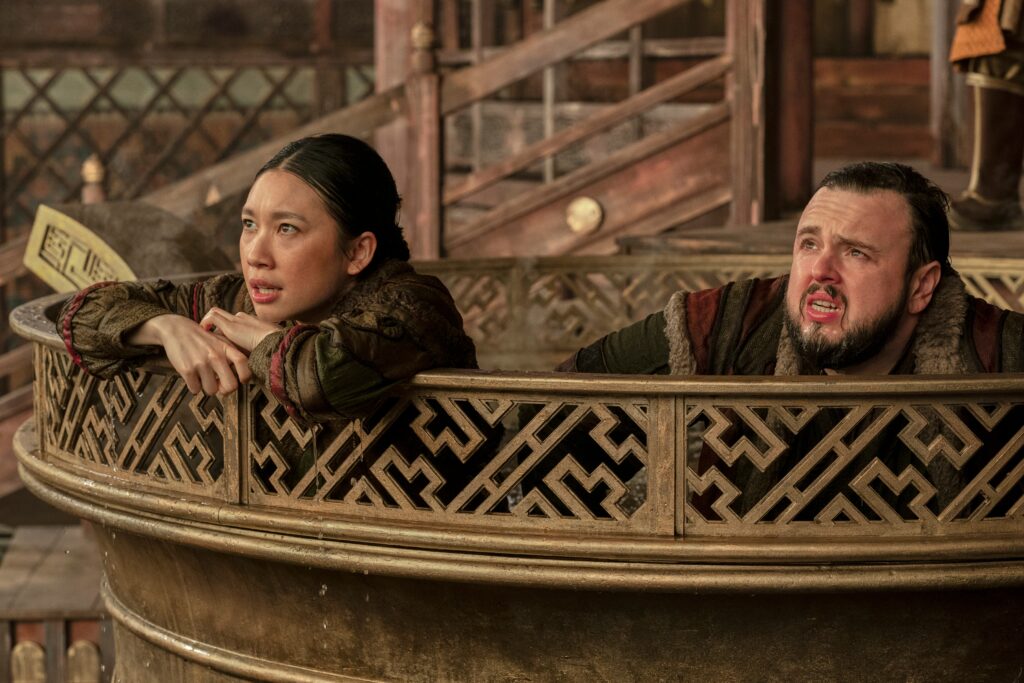
Auggie suddenly develops vision difficulties. Specifically, she notices an odd countdown encompassing half of her field of vision, similar to a critic with an anti-piracy watermark on a high-profile screening.
Where did the countdown come from? What is the countdown to? What does it have to do with Ye Wenjie and a mountaintop observatory in China following the Cultural Revolution? What does it have to do with Clarence, his shady boss Thomas Wade (Liam Cunningham), or the even shadier and more mysterious millionaire Mike Evans (Jonathan Pryce)? And how does it relate to a gleaming virtual reality headgear that appears to play only one very puzzling game situated in a desert world with three suns?
The short and somewhat indirect answer is: Something very horrible is coming, something that threatens all of humanity, totally different from what Rachel Carson warned readers about, but nonetheless an existential crisis.
But that “something bad” is a long way off, so 3 Body Problem, book and series, falls within the thought-experiment category alongside sci-fi works such as Isaac Asimov’s Foundation franchise, books, and series. It’s not as straightforward as sending oil drillers to an asteroid or sending Randy Quaid to a UFO with a computer virus. The question is partially, “What should we do now?” But the real question is “How do you get humanity to care about a threat that won’t impact them or their children or their children’s children?” How do you convince people to think about humanity’s multi-generational duration rather than just their own finite lifespan?

Weiss & Benioff (Game of Thrones) and Woo (The Terror: Infamy) are in a difficult situation. Take away the book’s dangling philosophical parts, and there’s little to distinguish 3 Body Problem as a science fiction brand. If you overemphasize the conceptual aspects of the book, you will limit your audience to those who understand the three-body issue in orbital mechanics. Without a doubt, prioritizing accessibility above authenticity was the proper decision, but the traces of the distinguishing aspects become akin to a $100 cheeseburger with a piece of gold foil on top. What did the gold leaf contribute to the burger? It allows you to charge $100.
The effort is sometimes quite admirable. I’d say the third episode, written by Woo and directed by Andrew Stanton, is the best example of 3 Body Problem excitedly latching onto fascinating concepts and visualizing them as beautifully as I could imagine. This is the episode that delves the most deeply into the world of the virtual reality game, complete with historical characters, enormous puzzles, and desiccated bodies, as well as setting the stage for the actual world. More frequently, however, I believe that television-only viewers will find the game and many of the book’s footnote-like remnants to be puzzling or meaningless.
I honestly don’t know how it could have been done better, but when a season reaches its brainy apex just before the halfway point, there’s a lot of increasingly perfunctory planning to accomplish.
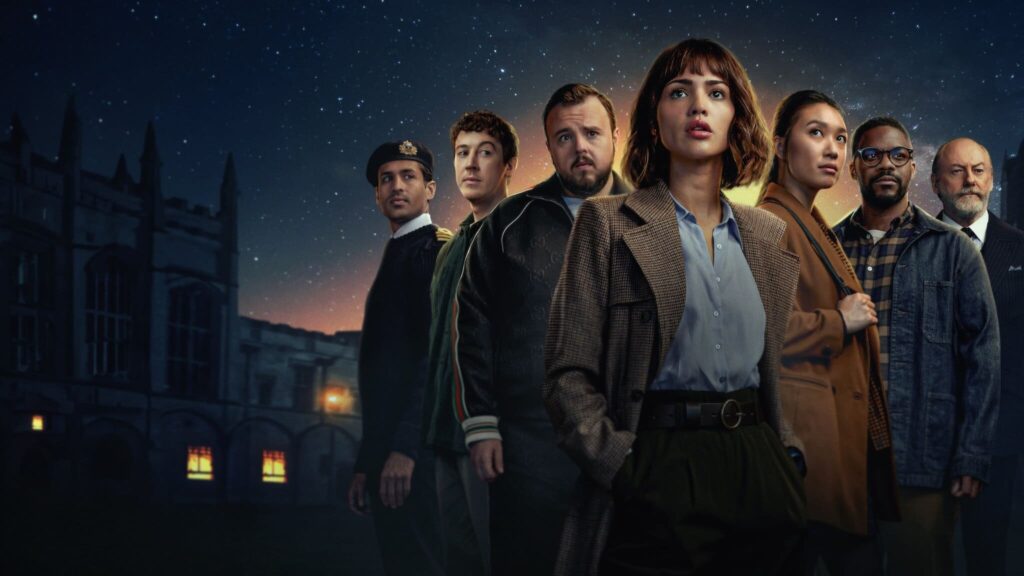
The same issue affects 3 Body Problems in terms of spectacle. It’s a generally attractive program, and elements such as the historical sequences in China are flawless in costume and production design (but ideologically superficial). However, this was supposed to be a major program for Netflix, yet it only appears to be so at times. The visual countdown, which should be an intriguing and horrifying concept, simply isn’t. The first episode concludes with an unusual natural phenomena that leaves everyone on the show perplexed, but I guarantee no viewers will be perplexed (or likely understand).
The series’ biggest set piece, which takes place near the Panama Canal, is amusing more for its gore than its large-scale execution (plus, it’s in service of a piece of strategy that makes no sense at all), and it comes in the fifth episode, leaving the rest of the season feeling a little anticlimactic.
The series contains some enjoyable moments. It’s simply flat, with cosmetic flourishes that extend to the characterizations and acting. Nobody in the group is awful, but very few performances stand out.
The most fun aspect of the series is Wong and Cunningham being harsh together. I could watch that for hours.
The Oxford Five frequently feel like exactly what they are: one character from a book split into five characters to give diversity of perspective, each sharing a single character’s plot. Bradley is a source of much-needed laughter. Hong, the season’s closest thing to a true hero, is earnest and emotionally grounded. Adepo is arguably overly sincere, never quite playing the burnout that the character is portrayed as, making it difficult to understand what should be a tremendous journey in the season’s final stretch. González deserves credit for letting herself be the target of the season’s funniest and harshest joke.
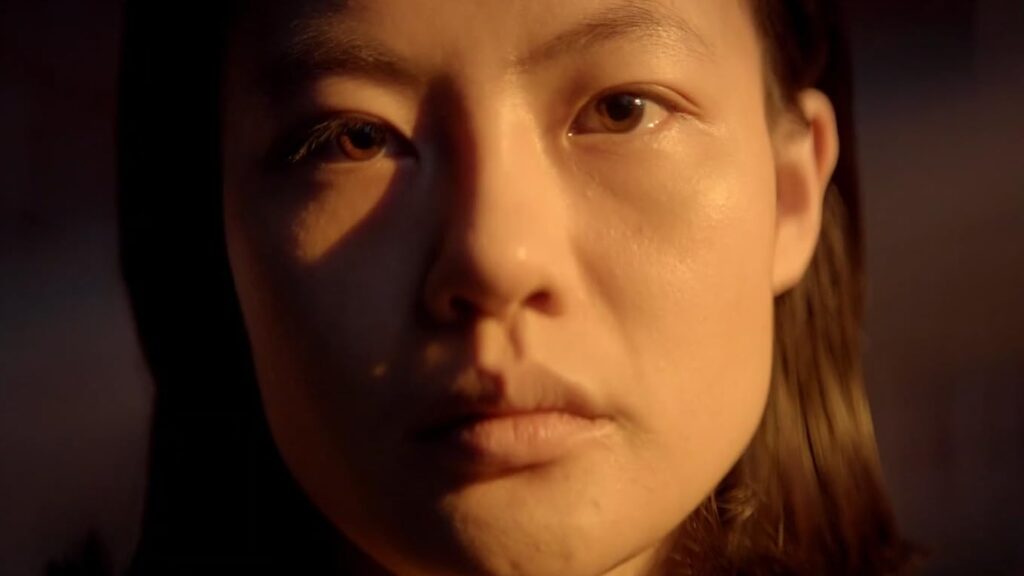
Rosalind Chao, as the older version of the Ye Wenjie character, exudes a serious worry that is both reassuring and unnerving, whereas Marlo Kelly’s wild-eyed intensity is perfect for Tatiana, a zealot with an ambiguous objective. And I’m not sure who had a close personal relationship with Pryce that convinced him to lend his gravitas to a character that doesn’t seem complex enough to warrant his presence.
Perhaps he, like Da Shi/Clarence, is another example of what 3 Body Problem does right and poorly. Because it’s never a bad thing to have Jonathan Pryce in your TV show, but having Jonathan Pryce teases you with the potential of getting value out of him. Similarly, having glimpses of all these meaningful thoughts and images teases you with the promise of gaining value out of them rather than something merely acceptable.
The eight-episode series premiered on Netflix on March 21, 2024.


